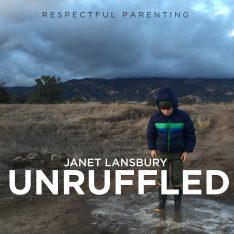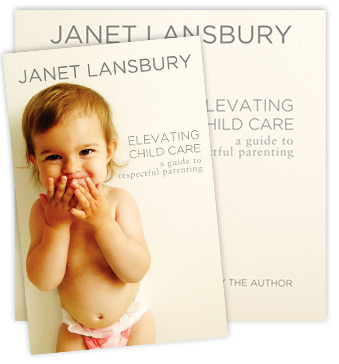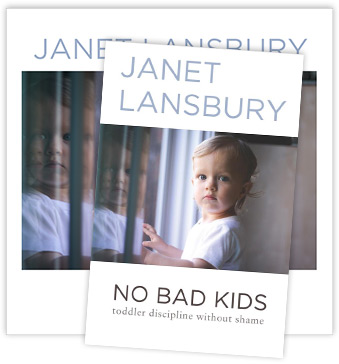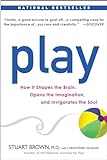It is human nature to prefer to avoid our children’s stronger, noisier emotions, whether these be tantrums, meltdowns, or even a more minor outburst, like our son’s sudden insistence that he doesn’t like the pancakes that have been his go-to favorite in the past. (How unfair is that?)
Part of the challenge is that we adults have developed emotional self-regulation and mostly live in our reasonable minds. Young children are quite different. For them, emotions are more free-flowing and turbulent. They brim to the surface easily, and kids just haven’t yet developed the power to prevent overflow. Unreasonable, senseless, fervent losses of control that would be rare in adults can be a daily occurrence for toddlers and preschoolers.
And in these cases, spilling emotions to a safe, accepting parent is exactly what kids need to do. Far from an indication that we’re failing, our children’s outbursts are an opportunity for us to practice rising to the occasion with courage and trust — breathing, calming ourselves, remembering that the feelings are our friends and not enemies, not a problem but often the cure. Because when children can fully express every one of their emotions in the presence of a calm parent, stress is relieved. The feelings are no longer in the driver’s seat dictating irrational behavior and our child’s overall mood.
It gets easier with experience to trust our kids’ feelings. We begin to recognize that their outbursts are not only the very best they can do in that moment, but necessary healing. Still, it’s never easy. How could it be easy to let our child suffer? How could it be easy not to take these outbursts personally when we work so hard to make things right for our children? We give our kids our all, and their meltdowns seem so unreasonable… because they are.
The practice of allowing feelings and even encouraging them (a parent once told me it helped her when I took it to that level), is a cornerstone of Magda Gerber’s approach. Authenticity and emotional health are greatly valued, and this acceptance piece was one many of us missed growing up. Perhaps we were shamed, rejected or otherwise encouraged to squelch unpleasant feelings. We were expected to move on from them almost immediately, as if that could make them disappear, but that wasn’t possible. Instead we hid them from view. Of course, their residue remained, internalized, and manifested in various degrees of shame and self-doubt.
“Let feelings be” is the underlying message in nearly every piece of writing or podcast I share, because I know how scary and challenging this is for parents. It’s tricky to grasp. We need reminders, practical examples, and practice. So I was thrilled to discover that a recent podcast, “Meltdowns at Bedtime (or Anytime)” seemed to click for many. Several parents shared success stories with me, and I appreciate them all!
Here’s the story that Geneva kindly shared. She nails it when she notes: “It really is hard to wrap your head around it until you see it in action.”
Your perspective has been critical in helping me continuously re-center my parenting compass, particularly over the past several months. While I’ve had many successful moments that have been guided by your wisdom (amidst a sea of not so great moments), I wanted to share one specific story.
A few weeks ago, I listened to an episode of your podcast in which a mother was struggling with her daughter’s pre-bedtime “meltdown” ritual. While I had never struggled with that particular issue, my passionate four-year-old has frequent meltdowns, so I listened intently to your advice to use in similar scenarios.
Well, fast-forward to last night and tonight: my daughter suddenly developed the same nighttime ritual. After all elements of her bedtime routine were complete and it was time to turn out the light, she identified a reason to be upset (something small that would usually be inconsequential) and worked into a meltdown.
Tonight, I could feel my impatience growing along with my urge to threaten to leave the room. Instead, I remembered your response on the podcast. I thought about my own busy day and how I, like you said, could probably use a good cry myself. I didn’t say a word but lay in her bed while she cried and writhed around (continually suppressing my urge to leave in frustration) and suddenly, just when I was starting to think maybe I should intervene, she stopped crying, crawled next to me, said “good night mommy” and was asleep within 5 minutes.
My heart felt so full. Thank you!
When I contacted Geneva to thank her for her story, she offered an update:
My success with that one nighttime meltdown has made it much easier for me to handle subsequent meltdowns (at any time of day). Now I truly respect her need to have a meltdown and my accepting stance leads to a much faster de-escalation! I’m sure you tell people this all the time, but it really is hard to wrap your head around it until you see it in action. 
Thank you, again, for your wisdom. I hope you and your family are safe and well.
Best,
Geneva
Thank you for allowing me to share your story and lovely photos, Geneva!
♥















Great one, Janet. So important, because none of us like meltdowns in others. Should be part of Social-emotional training.
Thank you so much, Rick. I agree it would help us all to have courses in just holding space for feelings. It’s the most challenging, yet passive thing I aim to do.
My 7-year old stepdaughter has been having some very powerful emotions lately about her distance learning assignments and sometimes just refuses to do them. My husband and I are okay with her outbursts, however, we’re having a hard time figuring out how to allow her to express herself without it affecting or distracting our 6-year old who is also distance learning. Any tips you can give us would be so greatly appreciated. We’ve been listening to your podcasts and reading your book and posts for almost 4 years now and you have helped us tremendously so thank you!
Oh when you’re already exhausted yourself, you know you don’t have the energy anymore for kids’ meltdown. You just want to be still and rest your mind and body as well. We need a great amount of self-awareness to be able to deal with our kids’ meltdowns especially in times when you’re drained. Wonderful story Geniva! That was a success, if it was I would have just cried myself to bed hahaha!
Hi Janet! I have an autistic child who I think may actually just have some attachment issues. I barely make it through the day, work full-time and am on call and have a second child who may have some emotional issues. I’ve been using the cry it out method but he won’t even eat the food he used to eat. I’m in a bad area so there’s a lot of fun violence. My kid has now started to hit. I was born in the third world with a poor upbringing. I’m so scared of messing up that ithibk it affects him. Please help. He has started to use us like a jungle gym and I think I gave him piggy back rides and but now he’s doing that with his little brother. He used to crywhenever his brother cried and I am at my wits end. I barely have time to myself and my husband is finishing his residency. Please help! I was also spanked as a kid and I think I didn’t give him enough tummy time. We did get some aba but I think he has a bit of a brand body disconnect and hits objects too hard.
Oh, this article resonated with me so much! You’ve hit the nail on the head with your insights on meltdowns. I absolutely agree that these outbursts are not problems but opportunities for growth. Your perspective on embracing the feelings instead of suppressing them is so refreshing and aligns with my own approach. Your advice to “let feelings be” is a mantra that I’ll surely be repeating to myself and my readers. Thank you for this empowering perspective, and kudos to Geneva for such a beautiful success story!